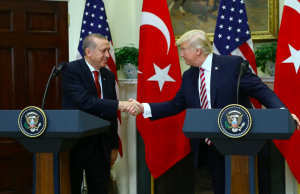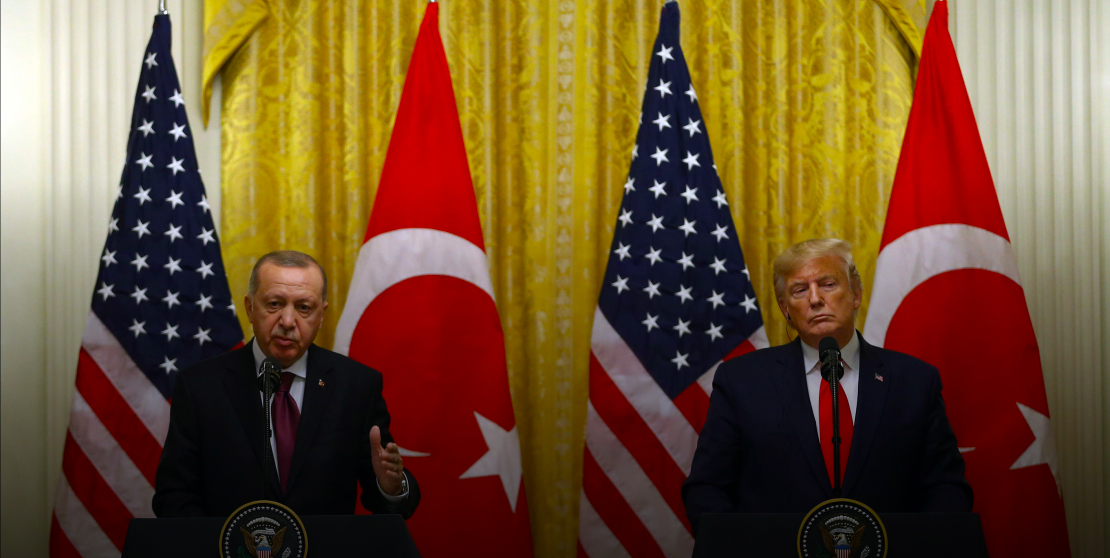ANKARA, TURKEY — Many Americans are experiencing election anxiety, a condition for which experts have offered possible solutions. For the Americans living abroad, the anxiety is rooted in different causes.
Originally from Louisiana, Renee Ellis teaches English in Istanbul. Ellis said that although she may not face the direct effects of the election like someone living in the United States, the elections might alter her life in Turkey.
“I’m worried that the elections are going to change Turkish-American relations for the worse,” said Ellis. “I like being here and I don’t want that jeopardized.”
History of Up and Downs
Turkish-American relations have not always been positive. Most recently, there are reports about possible US sanctions to be potentially placed on Turkey due to the purchasing of Russian military defense systems. Previously, tensions arose due to the United States government’s refusal to extradite Fetullah Gulen, the alleged leader of the deadly coup attempt in 2016. Gulen had lived in self-imposed exile in the US since 1999.
“There has been a bit of a rollercoaster,” said Dr. Tudor Onea, who teaches international relations with a focus on American foreign policy at Bilkent University. “Sometimes the relations deteriorated further, sometimes they improved slightly.”
Despite the ongoing conflicts, Turkish-American relations have managed to stay diplomatic, adds Onea.
“I have always thought that the relations are good,” said Justice Hall, a former member of the US Navy, currently residing south of Istanbul. Hall said that both countries have maintained their diplomatic conversations because they rely upon each other.
Both members of NATO, the United States, and Turkey have been involved in numerous conflicts in the region, such as Syria. Although sometimes in disagreement, the countries stayed in conversation throughout the conflict.
“The United States needs Turkey,” said Onea when referring to protecting American interest in the region. “It would be a huge problem for them to not access Turkey through NATO.”
Because the interests are firmly set in place, the change in the leaders of the countries will not lead to a change in relations, added Onea.

Different Candidates, Same Coin
Although Donald Trump and Joe Biden have different stances on issues such as the economy and immigration, Onea said he thinks that the only notable difference between Trump and Biden’s foreign policy is the rhetoric they might utilize.
“Biden is more likely to be talking aggressively towards Turkey than Trump,” said Alah Daoudi, a native of Los Angeles residing in Istanbul. Agreeing with Onea, Daoudi added that he does not suspect much of a contrast in relations if the elected leaders were to change.
Past transitions of power in the White House have also shown that there is not much room for change in relations.
“There are real problems in between the relations of the two countries,” said Onea. “But these are not connected to Trump, or to Obama before him, they are constants in Turkish-American relations.”
Further arguing that there is not much of an expectation for surprises, Onea added that experts can predict future relations, if President Trump were to get reelected, based on the past four years, and with Joe Biden based on his role as the Vice President during the Obama era.
Regardless of different backgrounds, Onea, Hall, Daoudi, and Ellis agree on one thing: Turkish-American relations should remain positive.
“Both leaders, regardless of who might get elected, need to come to terms with the fact that Turkey and the United States need each other,” said Ellis. “That needs to be the first understanding in order to move forward.”













